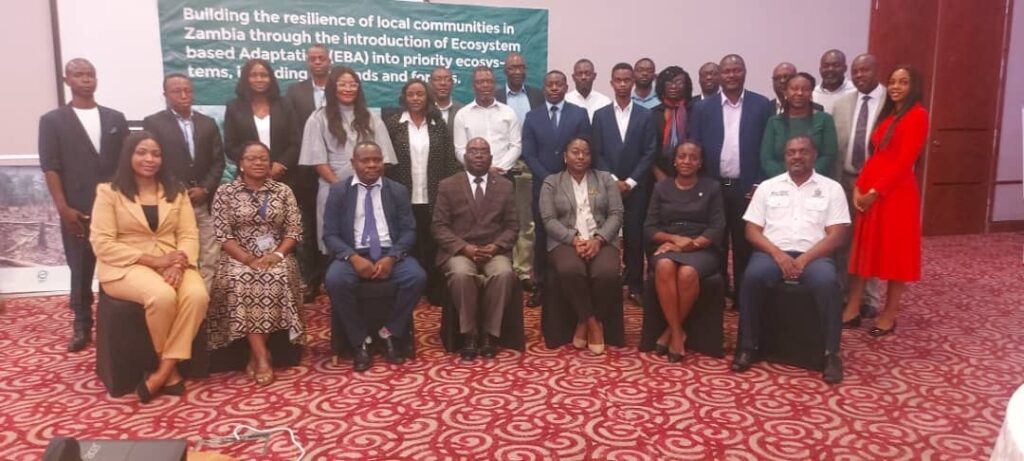Zambia Prioritizes Nature-Based Solutions for Climate Resilience and Sustainable Development
Zambia’s Ministry of Green Economy and Environment is taking significant strides in promoting nature-based solutions to ensure the long-term well-being of ecosystems, biodiversity, and human populations.
Permanent Secretary Dr. Douty Chibamba emphasized the importance of ecosystem-based adaptation (EbA) approaches during the recent Stakeholders Meeting on Environmental Planning and Management.
Dr. Chibamba highlighted the collaborative efforts between the government and local communities to implement nature-based solutions, such as assisted natural forest regeneration and restorative agricultural practices aimed at supporting soil health.
The ongoing Ecosystem Based Adaptation Project is a testament to Zambia’s commitment to implementing measures that enhance diverse and resilient livelihoods through quantifying and demonstrating the benefits of these approaches on the ground.
Addressing the meeting, Dr. Chibamba stressed the necessity of building capacity in environmental planning and management to effectively combat climate change.
He emphasized the critical role of environmental planning and management in reducing greenhouse gas emissions, promoting renewable energy, and adapting to climate change impacts.
The Permanent Secretary underscored the project’s impact on various aspects, including Environmental Impact Assessments, land use planning, natural resource management, waste management, biodiversity conservation, and environmental policy and governance.
Ministry of Green Economy and Environment Director – Planning and Policy Mr. Davies Chimfwembe, reading Dr. Chibamba’s speech highlighted the essential role of nature-based solutions in ensuring the long-term well-being of ecosystems, biodiversity, and human populations.
He emphasized the need for knowledgeable and skilled stakeholders to preserve and protect the environment for current and future generations.
Dr. Chibamba expressed optimism that with increased capacity, Zambia would fulfill its national, regional, and global commitments to reduce climate risks, contributing to a healthier planet for present and future generations.
The Ecosystem Based Adaptation (EbA) Project Manager, Ms. Nellie Ngulube, provided insights into the project’s scope, which spans four provinces – Luapula, Northern, Central, and Muchinga.
Ms. Ngulube outlined the goals for the year, including the development of community-specific livelihood plans, construction of seed banks and in-field water harvesting facilities, establishment of weevil breeding ponds, distribution of energy-efficient cookstoves, and the training of model farmers in climate-resilient agriculture practices.
As the 4-year project approaches its culmination in 2025, Zambia is poised to make substantial progress in promoting sustainable practices and resilience to climate change, ensuring a brighter and more environmentally secure future.



